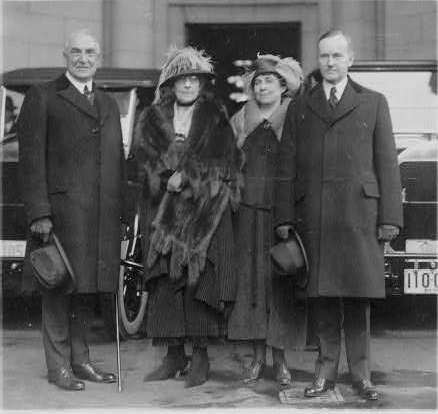The Politics of Boom Time, continued
Harding’s Vice President Calvin Coolidge took the oath of office in August of 1923. In a sharp contrast to Progressive Era politics, Coolidge believed that government should not interfere with business except to enact legislation to help it become as productive as possible. With guidance from the Secretary of Treasury Andrew Mellon, Coolidge supported measures to strengthen business wealth and personal income. Coolidge also continued isolationist policies, and supported his Secretary of State’s alliance with French Foreign Minister Aristide Briand in forging the Kellogg-Briand Pact. Under the pact, war was outlawed as national policy. Though signed by over sixty nations, the treaty had no instrument to enforce it. Under his administration the National Origins Act, which banned immigration from East Asia, was passed.

President Harding and Vice President Coolidge and their wives